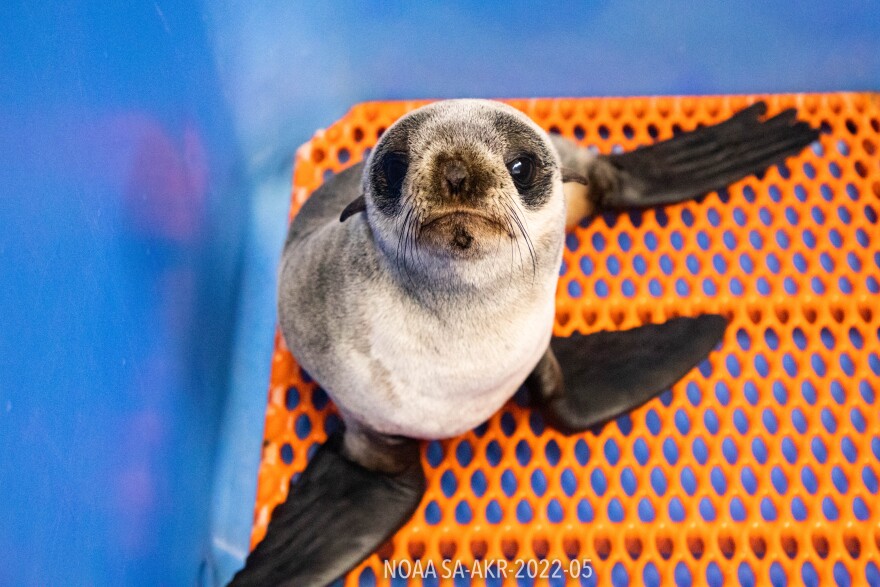Updated 2/7/23 at 2 p.m.
The Alaska SeaLife Center admitted a northern fur seal pup to its rehabilitation facility last week. It’s the Seward center’s first fur seal patient since 2017.

The female seal pup — estimated to be around six months old — was seen swimming “erratically” near the shore in Sitka last month, according to a press release from the center. Worried Sitka residents then reported the pup to the center’s 24-hour stranding hotline.
Sitka is an unusual location to see northern fur seals this time of year, which the center said raised concerns for her survival by center staff. Northern fur seals typically breed much further northwest in the Bering Sea and North Pacific Ocean.
The stranding hotline has received a few reports of young northern fur seal pups over the last few years, according to Julie Fair, a spokesperson with NOAA Fisheries. She said there have been three reports in the past three years, including this pup.
"However, previous fur seals were observed and their body condition and behavior did not warrant intervention," she said. "The current fur seal was observed in the same area over several days and showing erratic or unusual swimming patterns and its body condition was poor. Further, the fur seal pup was observed swimming in diesel/fuel sheen which also raised concerns about this fur seal pup's condition and ability to survive."
SeaLife Center staff got permission from NOAA and transported her to their facility for treatment. The center — also a public aquarium and research facility — is the only rescue and rehabilitation facility for marine mammals in the state.
Upon admission, the veterinary team discovered the pup was dehydrated and malnourished, with signs of an unknown infection in her bloodwork. She also seemed smaller than average for her age.
Staff are currently providing initial treatments and examining the pup further to understand more details about her condition.
If you see an injured or stranded marine animal, you can call the 24-hour Stranded Marine Animal Hotline at 1-888-774-SEAL.






